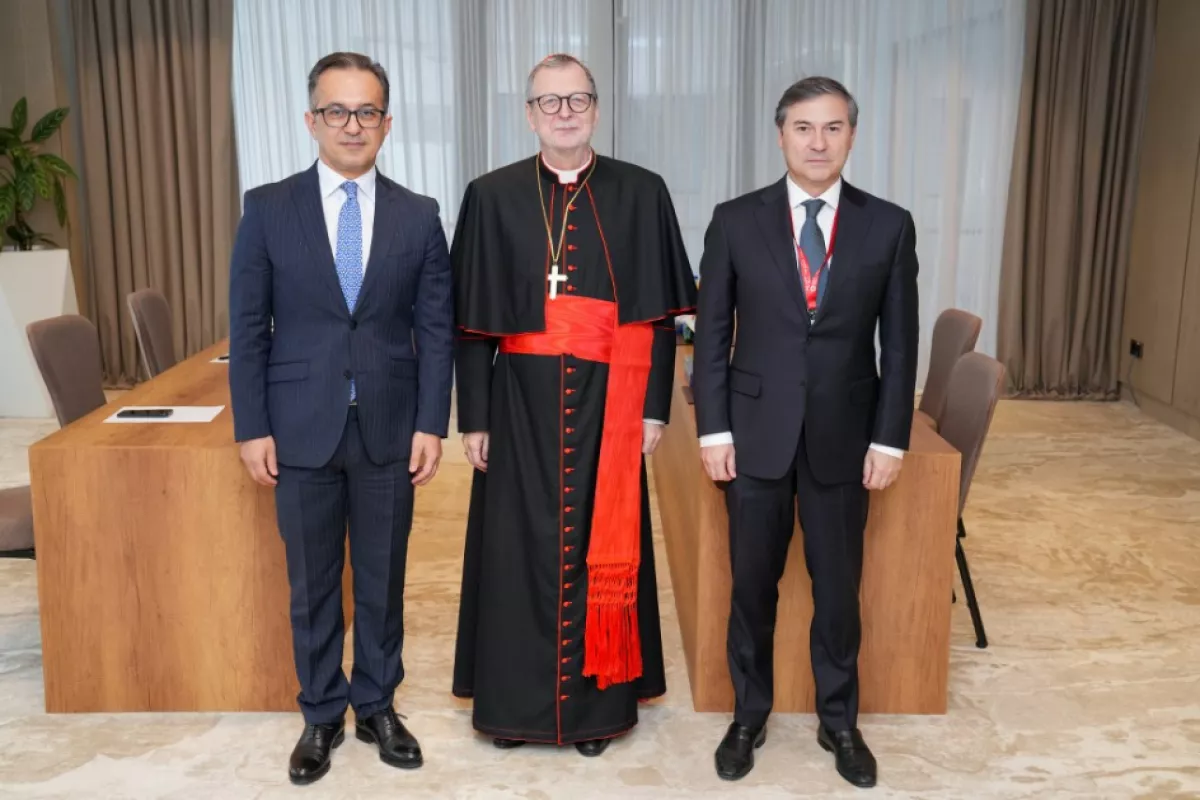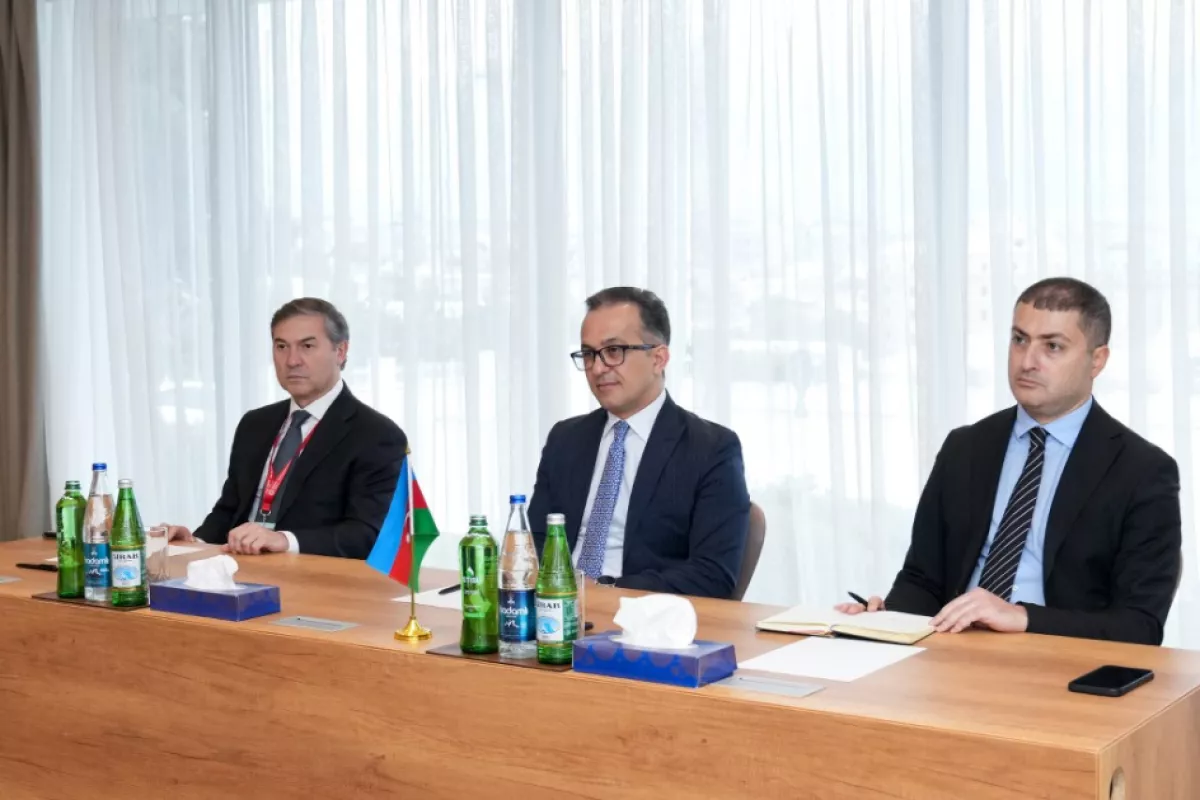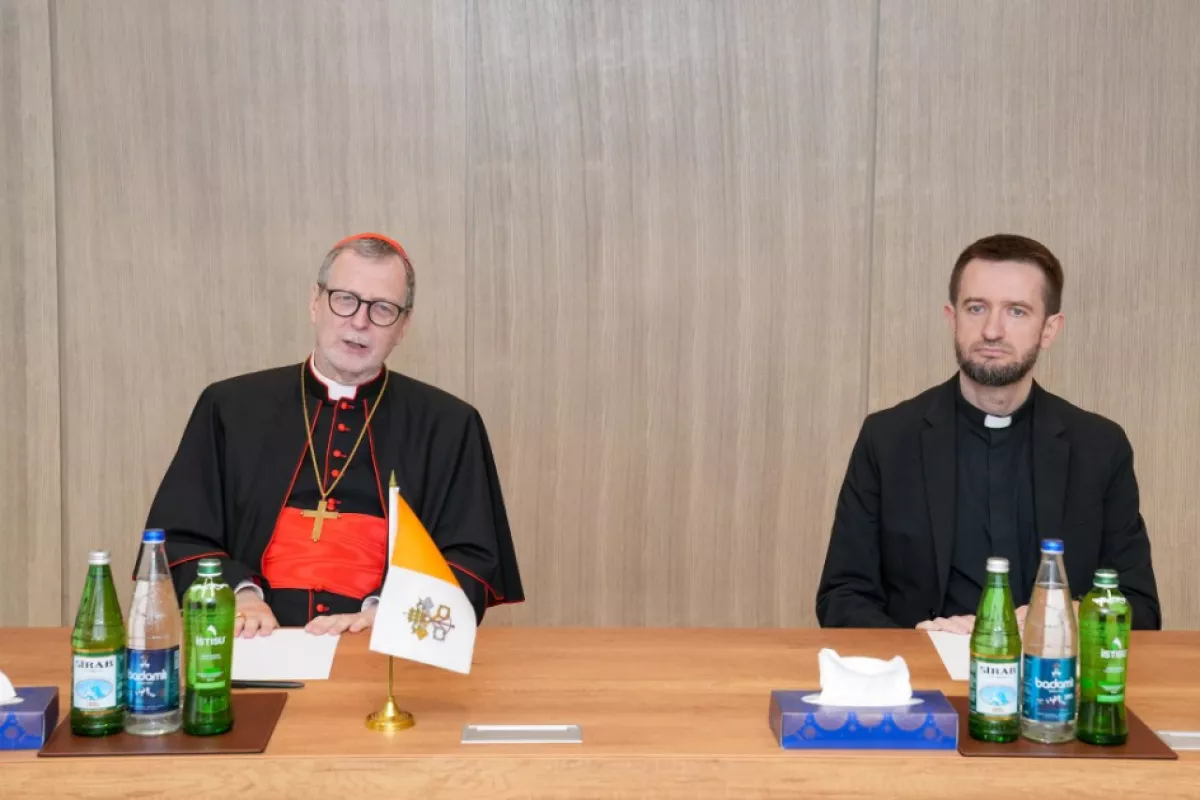Vatican cardinal lauds Azerbaijan’s model of religious tolerance
On November 4, Ramin Mammadov, Chairman of the State Committee for Work with Religious Entities, met with Cardinal Claudio Guggerotti, Prefect of the Dicastery for the Eastern Churches of the Holy See.
During the meeting, Mammadov highlighted the successful relationship between Azerbaijan and the Vatican, emphasizing Azerbaijan's long-standing multiculturalism, Caliber.Az reports citing local media sources.
He noted that Azerbaijan, a country with a rich history of tolerance, has never experienced national or religious conflicts. He credited national leader Heydar Aliyev for upholding this tradition, which President Ilham Aliyev continues to follow.
Mammadov also underlined the key role of the Heydar Aliyev Foundation in fostering ties with the Vatican. He mentioned that the Foundation has been instrumental in preserving, restoring, and reconstructing cultural monuments, both in Azerbaijan and abroad.
He further stated that Azerbaijan plays a leading role in promoting inter-civilizational and inter-cultural dialogue, with state-religion relations founded on principles of religious freedom, social justice, and mutual dialogue, creating a peaceful and harmonious society.
Cardinal Claudio Guggerotti praised Azerbaijan's respect and state support for religion, calling the country’s religious tolerance and care for different faith communities an exemplary model for other nations. He noted that this atmosphere of harmony opens opportunities for strengthening cooperation between religious groups and highlighted the attention given to all religious communities in Azerbaijan, including the Catholic community. The Cardinal also commended Azerbaijan's efforts in restoring churches and temples.
Cardinal Guggerotti expressed confidence in the significance of joint interfaith projects and welcomed the upcoming Global Summit of Religious Leaders, to be held just before COP29 under the theme "World Religions for a Green Planet." He emphasized that the summit will positively influence global efforts to engage religious leaders in addressing the environmental crisis.
By Tamilla Hasanova











